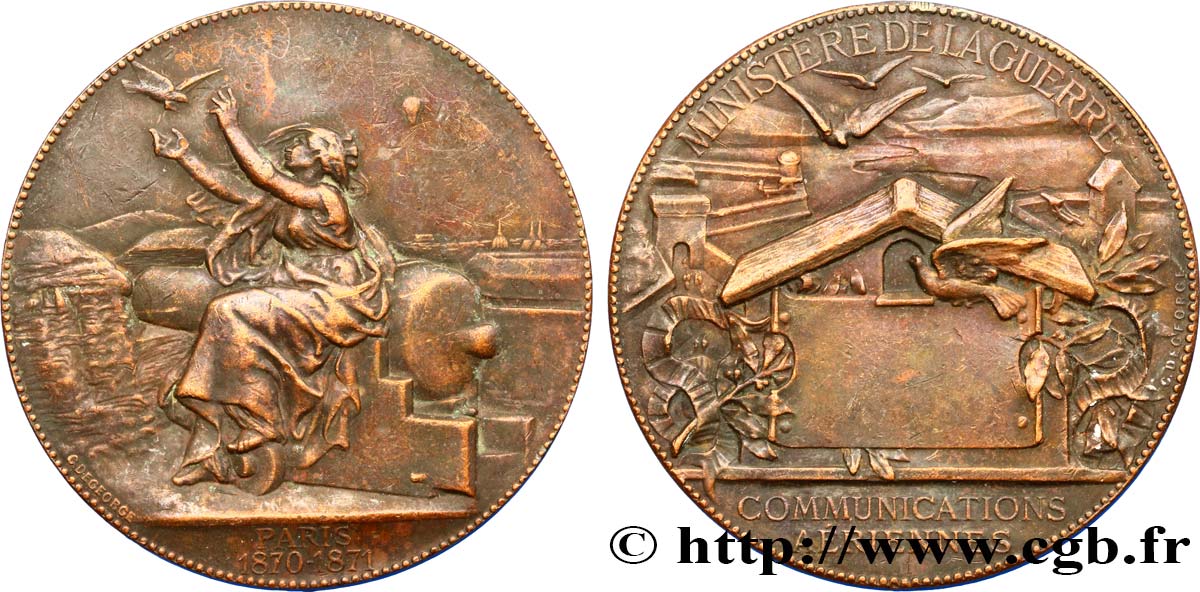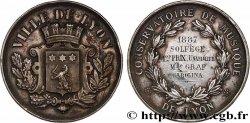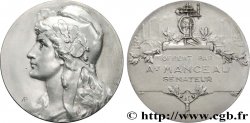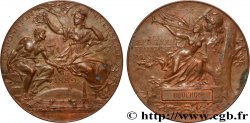fme_445749 - III REPUBLIC Médaille de la communication aérienne
无库存.
所有在网站上销售的产品 (2018)
价格 : 90.00 €
所有在网站上销售的产品 (2018)
价格 : 90.00 €
种类 Médaille de la communication aérienne
日期: 1871
铸币厂名称/城市 75 - Paris
材质 bronze
直径 50,8 mm
模子方针 12 h.
硬币制模工 DEGEORGE Charles (1837-1888)
重量 61,25 g.
侧面 lisse + Corne BRONZE
关于品相的说明
Médaille en bon état avec une patine brune
正面
正面的文字 PARIS 1870-1871.
正面的说明书 Allégorie féminine assise sur un canon, recevant un pigeon voyageur en train de se poser.
背面
背面的文字 MINISTÈRE DE LA GUERRE / COMMUNICATIONS AÉRIENNES.
背面的说明书 Cartouche non inscrit sur un pigeonnier ; d’autres pigeons au second plan.
评论
Charles Jean Marie Degeorge, dit Charles Degeorge, né le 31 mars 1837 à Lyon et mort le 2 novembre 1888 à Paris, est un sculpteur et médailleur français.
Cette médaille appartient à la même série que la médaille fme_445113, avec un même avers mais un revers différent.
Durant la guerre de 1870, particulièrement à l'occasion du siège de Paris des pigeons voyageurs ont été utilisés par les Français pour communiquer à l'insu de l'occupant prussien..
Cette médaille appartient à la même série que la médaille fme_445113, avec un même avers mais un revers différent.
Durant la guerre de 1870, particulièrement à l'occasion du siège de Paris des pigeons voyageurs ont été utilisés par les Français pour communiquer à l'insu de l'occupant prussien..








 对产品描述纠错
对产品描述纠错 打印
打印 分享我的选择
分享我的选择 提问
提问 Consign / sell
Consign / sell
 产品介绍
产品介绍



